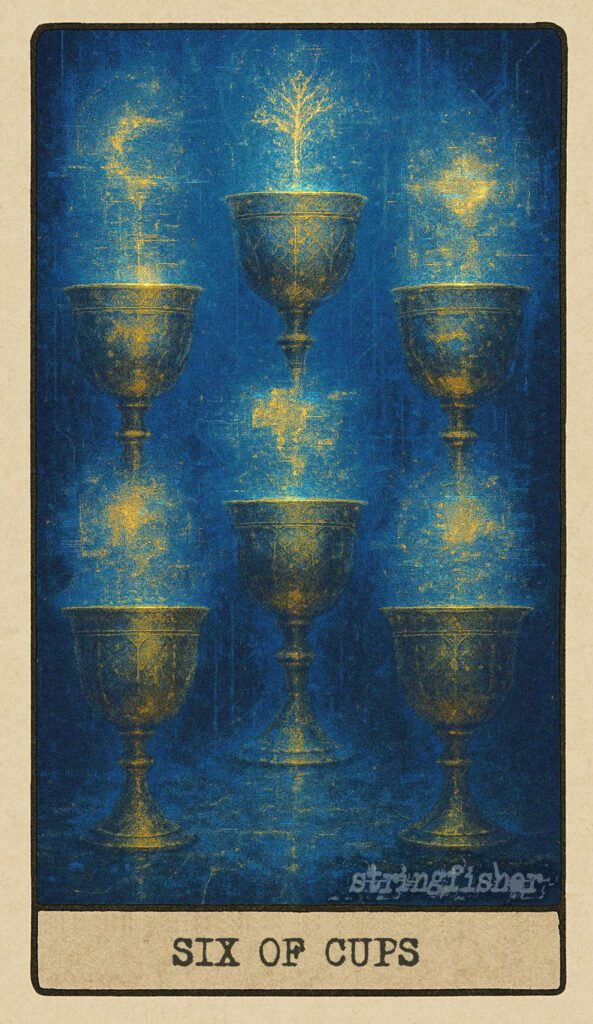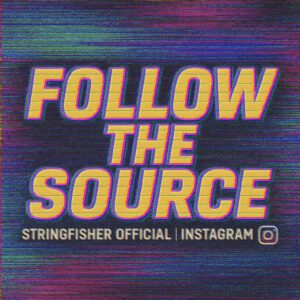
Six of Cups – Playback Loop | Stringfisher Tarot
In the Stringfisher Tarot, the Six of Cups appears as Playback Loop. A gentle recursion through memory, not to escape the present but to reweave it with meaning. This is the card of emotional resonance reclaimed. The sweet glitch in the system where the past doesn’t haunt but hums. It represents nostalgia, emotional healing and the rediscovery of a joy unburdened by expectation.
Where the Five of Cups marked the ache of what was lost, the Six of Cups is the resonance of what still lingers. It’s the old photograph you didn’t realize you’d kept. The scent that drops you back into a moment. The laughter from a younger self returning with no malice, only music. In the context of the Echo suit, this is the card where memory stops looping destructively and starts singing softly like a lullaby remembered in fragments.
Mythically, it draws from the sacred return: Odysseus stepping back into Ithaca, Psyche reunited with Eros or the hero who after great transformation, finally revisits the place they began. The power isn’t in the grand gesture, it’s in the quiet recovery of innocence. The playback loop doesn’t trap you, it reminds you why you moved forward in the first place.
Upright the card signifies childlike joy, healing through memory, reconnection with the past and emotional restoration. It’s the psychic echo of simpler times, not as delusion but as a touchstone. It may signal reconnection with a person from the past, creative rediscovery or inner child work. This is the moment when the emotional signal cleanses itself and returns, not broken but warmer.
Visually, six cups are spaced evenly across a dark interface. Each one flickering like an open memory file. Inside: moving images. Glimpses of past joy, love, comfort, childhood symbols or faded scenes from emotionally charged moments. The light is soft, golden, glitching gently around the edges. In the background: blurred sounds of laughter, the suggestion of home. The layout mimics a digital archive but there’s warmth in the order.
For Nak, Playback Loop is the card that surfaces when he samples his own earliest recordings. Not with critique but affection. For Echothor, it represents the emotional data he never deleted, finally accessed without distortion. For Wednesday, it’s the looping thread of music she plays to herself when the network sleeps. For the listener, this card says that the past isn’t dead and it doesn’t want to own you. It just wants to show you something you forgot you needed.
Quote
“I replayed the memory so many times, it started singing back in harmony.”

